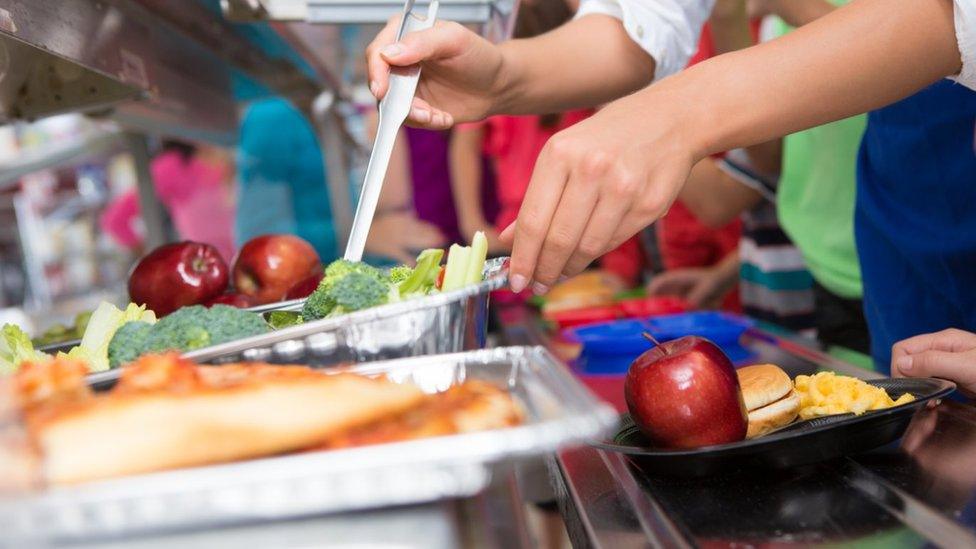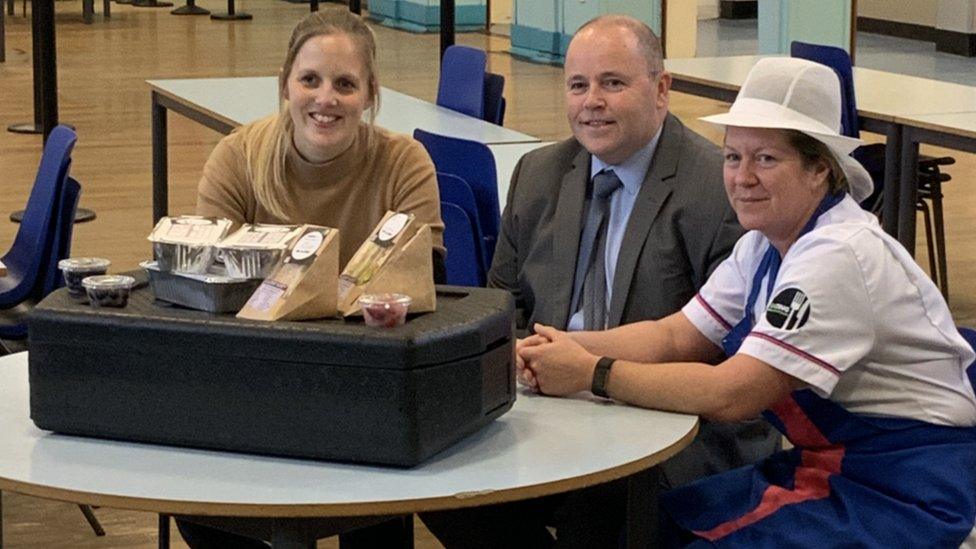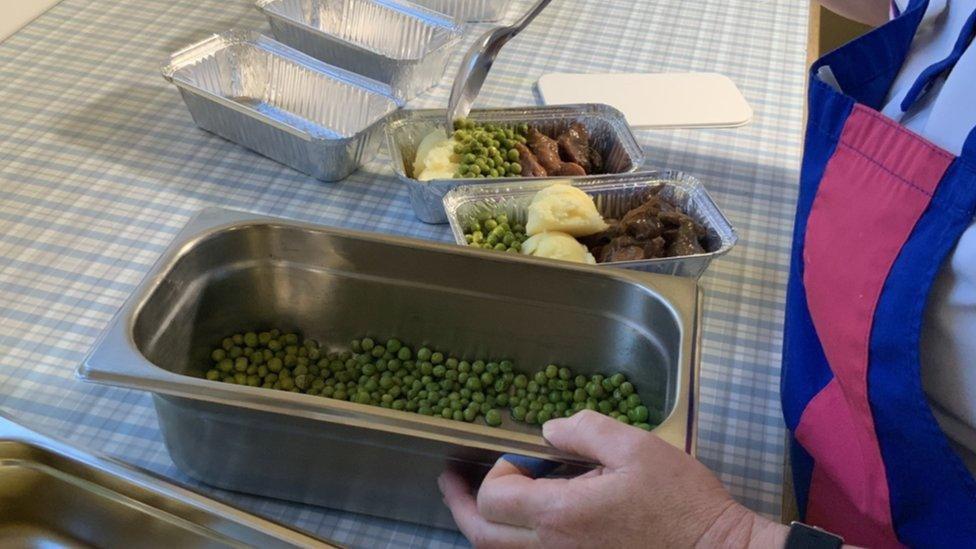The Scottish schools tackling waste and poverty
- Published

When teacher Carrie Smith realised some of her pupils were going hungry, she started sending them home with leftover school meals.
The innovative scheme has now been running at Cumnock Academy in Ayrshire for two years and demand remains high.
In fact, the initiative has been so successful, it has been rolled out to 12 other schools in East Ayrshire.
It is one of a series of simple, effective projects drawn up by schools aimed at tackling poverty and waste.
They have first-hand experience of the problems encountered by the almost one in four children living in poverty in Scotland, external.
And according to Zero Waste Scotland, 566,000 tonnes of food are thrown out every year - most of it still edible.
Here are some of the initiatives operating at schools across Scotland in a bid to address these twin problems.
Take-away school meals

Carrie Smith (left) founded the scheme at Cumnock Academy
Every lunchtime at Cumnock Academy, surplus food is portioned, packaged up and blast-chilled so pupils can take it home the next afternoon.
Fresh sandwiches, salad and fruit are also available for young people to pick up that day - all free for every student.
It was the brainchild of Ms Smith, the principal teacher for guidance, who became aware that some pupils did not always get three meals a day.
And it has proved to be a worthwhile scheme - at Cumnock, all of the food is taken by pupils every day, which "demonstrates the need for it", Ms Smith said.
In November alone, 1,500 portions of food were taken by pupils at the 13 East Ayrshire schools which have adopted the scheme.

The scheme aims reduce hunger amongst its pupils and make lunchtime more sustainable
Ms Smith was keen to ensure the service remained "low key", to ensure pupils were comfortable picking up the meals.
It is not means-tested and there is no requirement for extra staff as they do not keep a record of which pupils are using it.
That means the schools can run the project at no extra financial cost to local authority.
Celebrating clean plates
St Bridget's Primary School in Kilbirnie, North Ayrshire, has been running an initiative to celebrate clean plates and minimise food waste for three years.
It started at lunchtime when pupils who ate their meal and left an empty plate were photographed and praised on the school Twitter page, external and in assemblies.
The idea has blossomed into part of daily school life at St Bridget's and every child who finishes their hot meal or packed lunch is awarded the title Waste Warrior.
Allow X content?
This article contains content provided by X. We ask for your permission before anything is loaded, as they may be using cookies and other technologies. You may want to read X’s cookie policy, external and privacy policy, external before accepting. To view this content choose ‘accept and continue’.
Head teacher Denis Hopkins said it was good for the environment but also meant pupils were being well fed during the day.
One Waste Warrior has had their picture taken each lunchtime with a clear plate since starting school in August this year.
Parents are also encouraged to tweet pictures of their children from home, restaurants or parties to show off their empty plates.
This is to teach children that making important choices about food waste is important wherever they are.
Some have tweeted pictures of their kids from all over the world with clean plates in Spain, Greece and even Florida.
"The kids are obsessive about it and the number of families engaged is magic," said Mr Hopkins.
A party clothes bank

About one million Christmas jumpers will be purchased this festive season, according to charity Hubbub - despite the fact Scots already own five million.
But at one primary school in the Scottish Borders, staff, parents and children are trying to minimise clothing waste this festive season.
Christmas jumpers, party dresses and outfits which children have outgrown are being handed in to staff at Jedburgh Primary School.
They are then available to collect to parents looking to keep costs down at Christmas.
Head teacher Morgan McCreadie said it can be difficult for families to buy new items every year - especially when children grow so quickly.
It also encourages families to be more sustainable and reuse items instead of just buying new every December.
You might also be interested in:
The party clothes donated to the school "have huge amounts of life left in them", Ms McCreadie explained.
Iain Gulland, chief executive of Zero Waste Scotland, said: "It's wonderful to see schools across Scotland retain the value of the materials to benefit others.
"All too often we consider items, such as surplus food or unwanted clothes, as waste when actually they can be passed on or reused for someone else to enjoy.
"Keeping resources in circulation benefits the planet because it reduces the demand to produce new materials, which can be a significant source of carbon emissions, and enables us to make more of what we already have."